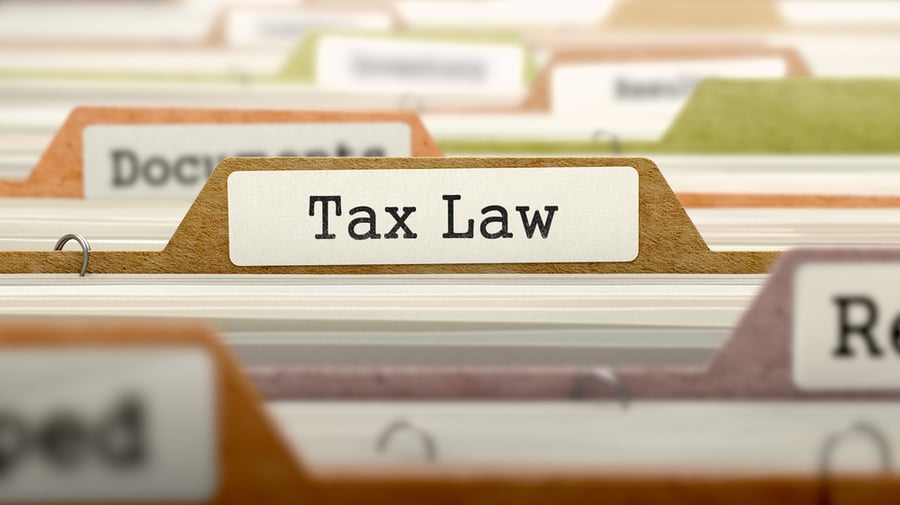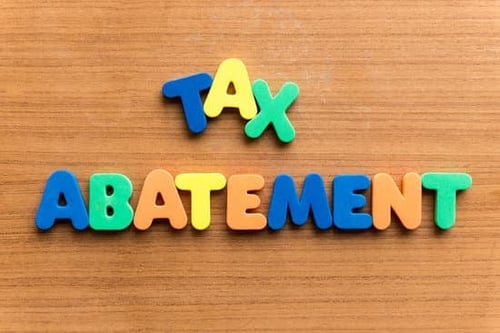Powell Tax Law Blog

Understanding Estimated Tax Payments
As tax season rapidly approaches, many individuals, couples, and businesses are gearing up to file their annual tax returns. For some taxpayers, however, the process involves more than just filing taxes once a year as they need to file estimated tax payments every quarter.
Understanding and fulfilling the obligation of estimated tax payments is crucial for taxpayers with specific income scenarios as failure to make them can lead to penalties and interest due to the IRS.
“Estimated tax is used to pay not only income tax but other taxes such as self-employment tax and alternative minimum tax. If you don't pay enough tax through withholding and estimated tax payments, you may have to pay a penalty,” says the IRS. “You also may have to pay a penalty if your estimated tax payments are late, even if you are due a refund when you file your tax return.”
What Are Estimated Tax Payments?
Taxes must be paid as you earn or receive income during the year, either through withholding or estimated tax payments.
If the amount of income tax withheld from your salary or pension is not enough, or if you receive income such as interest, dividends, alimony, self-employment income, capital gains, prizes, and awards, you may have to make estimated tax payments.
If you are in business for yourself, you generally need to make estimated tax payments.
According to the IRS, these groups must pay estimated tax:
- Individuals, including sole proprietors, partners, and S corporation shareholders, generally must make estimated tax payments if they expect to owe tax of $1,000 or more when their return is filed.
- Corporations generally must make estimated tax payments if they expect to owe tax of $500 or more when their return is filed.
- You may have to pay an estimated tax for the current year if your tax was more than zero in the prior year. See the worksheet in Form 1040-ES, Estimated Tax for Individuals for more details on who must pay estimated tax.
“If you receive salaries and wages, you can avoid having to pay estimated tax by asking your employer to withhold more tax from your earnings,” advises the IRS. “To do this, file a new Form W-4 with your employer. There is a special line on Form W-4 for you to enter the additional amount you want your employer to withhold.”
The IRS says you don’t have to pay estimated tax for the current year if you meet all three of the following conditions.
- You had no tax liability for the prior year.
- You were a U.S. citizen or resident alien for the whole year.
- Your prior tax year covered a 12-month period.
Calculating and Paying Estimated Tax
Estimated tax payments are generally due four times a year, with specific deadlines falling on April 15th, June 15th, September 15th, and January 15th of the following year. However, if any of these dates fall on a weekend or holiday, the deadline is typically extended to the next business day.
Taxpayers can make estimated tax payments using various methods, including:
- Electronic payment through the Electronic Federal Tax Payment System (EFTPS).
- Online payment options are available on the IRS website.
- Payment by phone.
- Mailing a check or money order to the IRS.
- Taxpayers can also choose to have estimated taxes withheld from other sources of income, such as pensions and Social Security benefits.
Calculating estimated tax can be a bit tricky with the IRS saying “To figure your estimated tax, you must figure your expected adjusted gross income, taxable income, taxes, deductions, and credits for the year.
“When figuring your estimated tax for the current year, it may be helpful to use your income, deductions, and credits for the prior year as a starting point. Use your prior year's federal tax return as a guide. You can use the worksheet in Form 1040-ES to figure your estimated tax,” says the IRS.
Why You Might Need to Pay Estimated Taxes
Several scenarios may trigger the need for individuals or couples to make estimated tax payments:
- Self-Employment Income: Self-employed individuals are responsible for paying their own income and self-employment taxes. Since taxes are not withheld from their earnings, they must make estimated tax payments to cover their tax liabilities throughout the year.
- Additional Income Sources: Taxpayers who receive income from sources that do not withhold taxes, such as rental income, investment income, or freelance work, may need to make estimated tax payments to avoid underpayment penalties.
- Large Capital Gains: Taxpayers who realize significant capital gains from the sale of assets, such as stocks, real estate, or businesses, may need to make estimated tax payments to account for the tax liability associated with those gains.
- Retirement Income: Individuals who receive retirement income and do not have taxes withheld may need to make estimated tax payments to ensure they meet their tax obligations throughout the year.
When in doubt about paying estimated taxes, always consult with a tax professional.
Consequences of Not Making Estimated Tax Payments
Failure to make estimated tax payments or underpaying estimated taxes throughout the year can result in penalties and interest assessed by the IRS.
The underpayment penalty is calculated based on the amount of tax owed and the number of days the payment is late. By making timely and accurate estimated tax payments, taxpayers can avoid these penalties and stay compliant with IRS regulations.
“Generally, most taxpayers will avoid this penalty if they owe less than $1,000 in tax after subtracting their withholdings and credits, or if they paid at least 90 percent of the tax for the current year, or 100 percent of the tax shown on the return for the prior year, whichever is smaller. There are special rules for farmers, fishermen, and certain higher income taxpayers,” says the IRS.
The penalty may also be waived if:
- The underpayment was due to a casualty, disaster, or other unusual circumstance and it would be inequitable to impose the penalty, or
- You retired (after reaching age 62) or became disabled during the tax year for which estimated payments were required to be made or in the preceding tax year, and your underpayment was due to reasonable cause and not willful neglect.
Estimated tax payments play a crucial role in ensuring that taxpayers meet their tax obligations throughout the year. Consulting with a tax professional can provide personalized guidance and assistance in managing estimated tax payments and minimizing tax liabilities.







